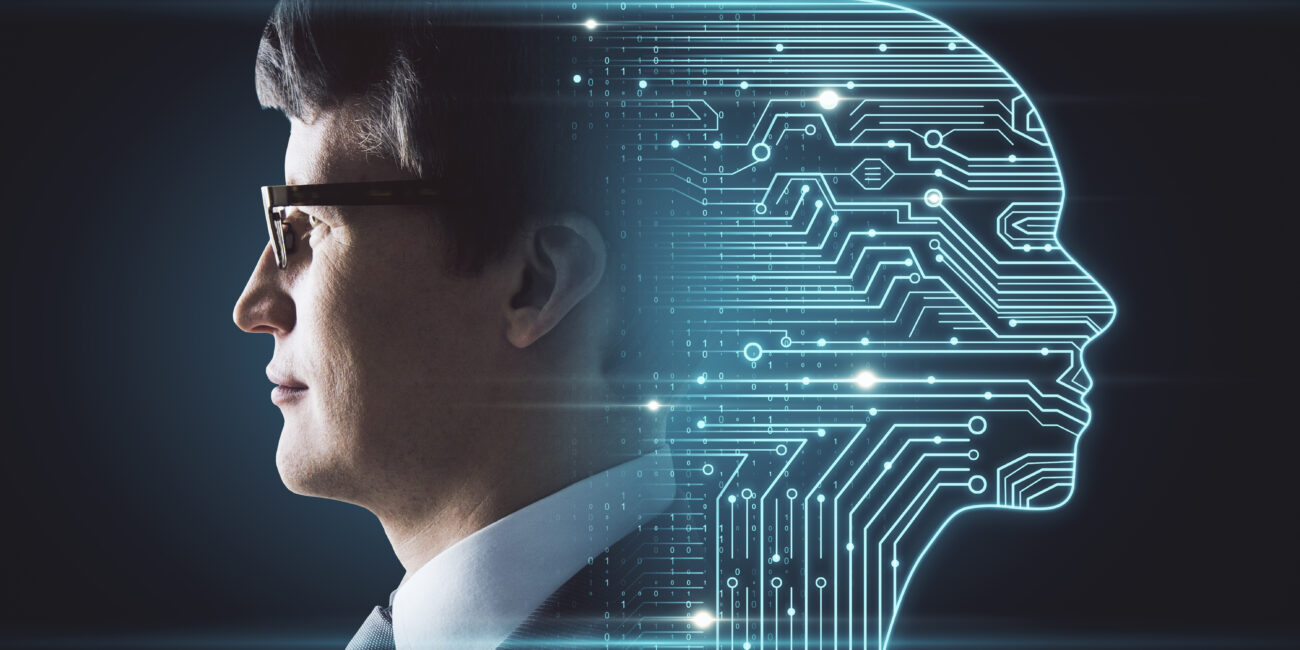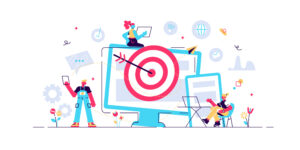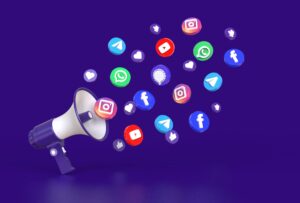If there is one thing that remains constant in digital marketing, it’s that everything is continually changing. Over the years, new tools, platforms, and techniques have emerged, changing the trajectory of marketing strategies. Social media made waves as marketers had to learn how to engage with customers on entirely new channels. Big data transformed how businesses could understand their customers. Every day, it seems as if another technological advancement is shifting how marketing takes place.
With the rapid evolution of technology, digital marketing is staged to take once again a colossal shift with the integration of Artificial Intelligence (AI).
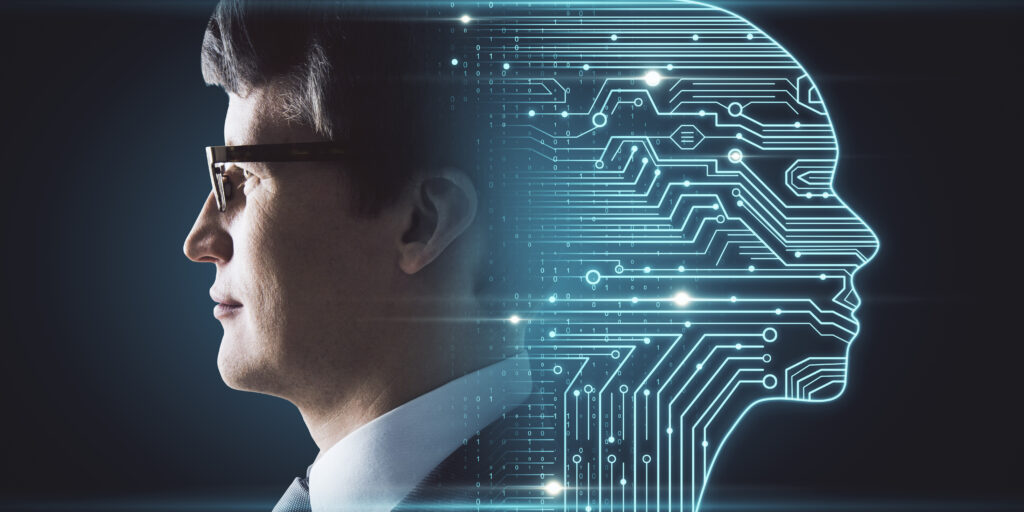
The Next Stage of Marketing
AI has the potential to revolutionize how businesses learn about their customers, attract and interact with customers, and manage staggering amounts of data. AI can help businesses automate tedious tasks, freeing up time for developing innovative and creative strategies.
As the power of AI becomes apparent, businesses are taking note. The adoption of AI technology has more than doubled in recent years. According to a survey by McKinsey, in 2017, only 20% of respondents had adopted AI in at least one business area. Now, that adoption figure has reached 50%.
While all business is affected by AI, marketing is predicted to be the area most poised to be changed by AI. Much of this is due to the potential for AI to drive revenue. Along with sales, marketing is the business function McKinsey predicts will be impacted the most financially.
As teams learn how to automate marketing tasks and use machine learning to predict customer behaviors better, there is an incredible opportunity for lowering overhead while increasing revenue. This will occur in numerous ways, which we’ll explore further below. First, let’s begin with a look at where it started.
The Evolution of AI
While the hype around AI technology has reached new heights in recent years, AI itself is not new. Discussions of AI and its potential to solve complex problems have occurred since the 1900s. In 1950, Alan Turing, a young British polymath, began to explore the mathematical possibility of AI. Turing posited that if humans can take in information and use reasoning to solve problems and make decisions, why could a machine not do the same thing? This led him to publish the paper Computing Machinery and Intelligence, outlining ideas for creating intelligent machines.
While Turing laid the foundational groundwork for discussions around AI, computers at the time were not yet capable of a critical prerequisite to AI — they couldn’t store commands. Essentially, this meant that computers could not remember what they had done before and could not learn as they went.
By the late 1950s, this would change, and AI would begin to flourish. Computers became capable of storing information while simultaneously becoming faster and more affordable. By 1974, machine learning algorithms had taken off, and people had become increasingly adept at learning how to apply a computer algorithm to solve a complex problem.
It was during the 1990s that one of the first critical breakthroughs occurred in AI. In 1997, the then-reigning world chess champion and grand master Gary Kasparov was defeated by IBM’s chess-playing computer program — Deep Blue.
This signaled a shift, and over the following two decades, the rapid evolution in computing speeds changed the game forever. AI can analyze complex data sets in seconds with computing powers far beyond the human mind.
The recent release of Open AI’s ChatGPT — a language model capable of interacting with humans in a natural language — opened the eyes of the greater public to just how far AI has come.
For marketers, AI is poised to revolutionize how strategies are built, executed, and analyzed. In reality, the future of AI has already begun.
The Future of AI in Marketing Is Here
For those who remain skeptical of the critical role AI takes in digital marketing, it is important to start by understanding that AI is already integrated into most marketing tools. Any business that is using Google Ad campaigns is already benefiting from the power of machine learning.
However, while AI has been slowly implemented into the background of many marketing tools, the power of machine learning is just now beginning to take center stage. What started as a minimal implementation of algorithms is transitioning into the adoption of AI tools by the mass public. Previously, AI technology felt out of reach for the average user. The requirement of an in-depth understanding of machine learning and analytics meant only the largest organizations with dedicated data scientists could implement the full power of AI into marketing. Today, this is changing. New tools and platforms that feature easy-to-navigate interfaces ideal for small businesses and independent marketers are popping up left and right. This leads to the following key implementations of AI in digital marketing.
1: Ads Are Being Powered By Predictive Analytics
As mentioned above, AI is already working in the background, helping create more effective ad campaigns via Google, Facebook, and other significant players. Predictive analytics is the critical driver of ads. Through this AI-powered technology, tools are becoming better and better at predicting consumer behavior and understanding searcher intent.
This has massive potential for targeting customers, and third-party marketing platforms are increasingly leaning into the power of AI. Now, businesses can choose from countless tools designed to understand individual customer journeys better. AI can automate ad creation from here, tying together multiple marketing elements into the perfect ad based on what AI has learned about a specific user.
Not only does AI increase the accuracy of what information is surfaced to a potential customer, but it is also saving businesses an incredible amount of time. What was once a manual process is now an automated workflow.
2: Natural Language Process (NLP) Is Changing Chat Bot Technology
The customer experience is directly tied to brand loyalty. For this reason, it is necessary for customer service, sales, and marketing strategies to be married together. The perfect marketing plan will fall by the wayside if a customer has a question and no one can answer it. This is particularly true in a world where customers expect to be answered within minutes of asking a question.
Over the years, many companies with limited staffing capabilities have turned to chatbots to help solve this issue. However, early iterations of chatbots left many customers frustrated. Chatting with a bot felt far from human-like.
Today, Natural Language Process (NLP) is changing the game. NLP is a subsect of AI that focuses on training a machine model to interpret, understand, and analyze human language. The goal is to create an algorithm that can process human languages and provide output that sounds natural.
Chat GPT is a public-facing example of how NLP creates an entirely different chatbot experience. The answers that Chat GPT can generate sound far from robotic.
This same technology is being applied to numerous chatbot applications. These chatbots are changing how marketers, sales teams, and customer service representatives interact with customers. In fact, in one use case, an insurance company was able to use a chatbot to successfully conclude almost 78% of their transactions.
3: Content is Getting Smarter
As NLP changes how AI interacts with humans, the future of content is also poised to shift. For example, Buzzfeed — one of the largest content-driven sites in the world — is using AI to drive its content operations. Buzzfeed uses AI to understand the probability of a content piece going viral. They use it to provide suggestions of what readers would like to see next. And it uses AI to automate numerous routine tasks.
Another example of using AI in relation to content is found in email marketing. AI-powered tools are helping automate the creation of subject lines based on an understanding of an individual recipient. These tools are also being used to automate email workflows and design compelling newsletters.
At the same time, it is important to point out that while AI has come a long way in the ability to create human-sounding copy, it is still imperfect. Even the best AI tools still run the risk of producing inaccurate or defamatory content. For this reason, Gartner predicts that by 2027, 80% of enterprise marketers will have a content authenticity function in place designed to help combat fake material and misinformation.
4: Marketing Is Taking a Personalized Approach
Perhaps one of the greatest areas in which AI is making waves in marketing is through the ability to create hyper-personalized campaigns. AI can help marketers learn more about who their audience is and what they will respond to best.
This is all done through AI’s incredible ability to analyze large data sets in a matter of seconds. Not only that, but AI tools can transform that data into meaningful insights. This is vitally important for businesses to succeed. In fact, a recent study showcased that data-focused companies exhibit a 162% improved chance to outperform their competition.
Through an improved understanding of your audience, you can learn more about the motivations behind your customers and can create content designed to reach a niche group.
In a discussion around AI marketing, Brian Solis, Principal Analyst at Altimeter, puts it well:
“AI marketing combines intelligent tech and human creativity to learn, understand and engage with consumers at the individual level with hyper-personalized, relevant and timely communications, making them feel compelled to remain engaged.”
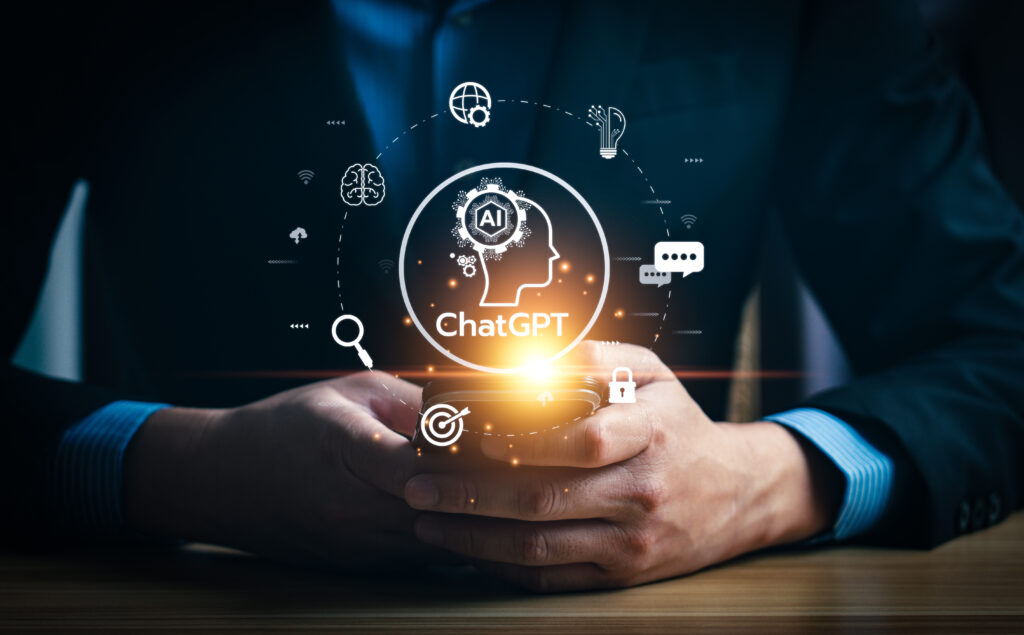
Using AI to Power Your Marketing Strategy
As is always the case with digital marketing, businesses that wish to remain ahead of the competition must continually innovate and test new technology. If your organization is looking to invest in AI to help power your marketing strategy, now is the time to begin.
At J&L Marketing, we are here to help. We can work with you to discover what tools will allow you to unearth critical information about your customers. From here, we can help you use AI-powered technology to automate and optimize your marketing campaigns in real time. Whether creating better ad copy, designing more appealing display ads, or adjusting audience segments based on previous data, AI is here to transform your digital marketing strategy. To learn more, reach out for a free consultation with our team.
